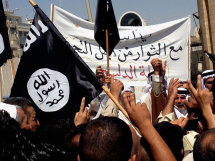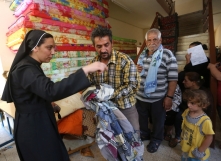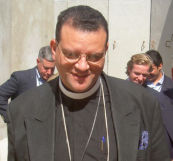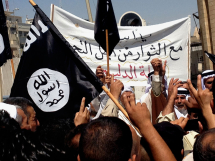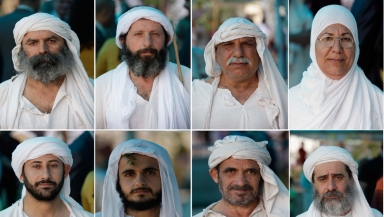
The Islamic State (IS) has killed Shia Muslims and Christians indiscriminately in recent weeks. But they're not the only minorities being persecuted. There are others being targeted by the Islamic State who get far less attention...
Shabaks
A group of about 60,000 people, concentrated in the Nineveh plains having migrated from Persia in the 16th century. They speak Shabaki, which is also spoken in north western Iran.
Shabak religious beliefs have some similarities with Christianity and Islam as well as with the Yazidis – including going on pilgrimage to Yazidi shrines.
Saddam Hussein attempted to 'Arabize' the Shabaks in order to secure control of the oil fields in the north. They have also faced persecution from Sunni militants since at least 2007. Nineveh has seen intense persecution in recent weeks since IS instituted its self-declared caliphate.
Mandaeans
An ehthnoreligious group of up to 7,000 people in Iraq, and up to 10,000 in Iran. Mandaeans speak Iraqi Arabic and modern Persian, while the original Mandaic language is preserved as a liturgical language.
They follow Mandaeaism, a form of Gnosticism. There is some overlap with Christian belief and practices; John the Baptist is a key prophet and Mandaeans practise immersion as a purification ritual. As with other forms of Gnosticism, some argue that their beliefs predate Christianity.
They have faced significant persecution since 2003, and in 2007 many Mandaeans fled to Syria and Jordan under persecution.
Turkmens
Turkmens are the third largest ethnic group in Iraq, after Arabs and Kurdish. They are predominantly based in northern Iraq, and have close cultural ties with Turkey.
They speak the Turkmen language, closely related to Azerbaijani and Anatolian Turkish. Most follow Islam, with about 60% Sunni and 40% Shia.
Under Saddam Hussein they were denied political and cultural rights. Al-Monitor reported the frustration from some in Turkmen community about a lack of intervention from Turkey in the current conflict.
Yazidis
There are 700,000 Yazidi worldwide, with about 500,000 living in northern Iraq. They are ethnically and linguistically Kurdish. It is a relatively closed community with a strict caste system and it is forbidden to marry outside the Yazidi community.
Their religious beliefs comprise a mixture of Zoroastrianism, Christianity and Islam, as well as Judaism and Gnosticism. They believe in one God, but seven deities, the primary one being 'Tawsi Melek', which means 'Peacock King'. Another name for Tawsi Melek is 'Shaytan', the Arabic word for devil, however they do not believe him to be a source of evil but the leader of the archangels. For this reason IS describe them as 'Satan worshippers'.
Humanitarian agencies estimate that up to 40,000 people have been trapped on Mount Sinjar and risk dying of thirst and starvation as they fear brutal IS attacks at the base of the mountain. As many as 300,000 are also under pressure to leave their homes in the region around Mosul.
The group's leader, Prince Tahseen Said, appealed to international leaders to help the Yazidi community according to the Chicago-based Assyrian International News Agency. "I ask for aid and to lend a hand and help the people of Sinjar areas and its affiliates and villages and complexes which are home to the people of the Yazidi religion," he said.
"Citizens of this religion are peaceful people who acknowledge all principles and humanitarian values and respect all religions, and never had enmity against any of their countrymen," he added.










